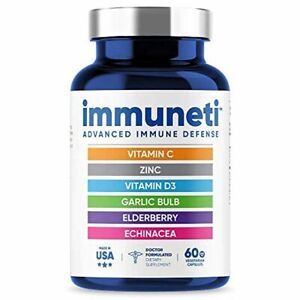In today’s fast-paced world, maintaining a strong immune system is vital for overall health and wellbeing. One nutrient that plays a crucial role in supporting our immune system is Vitamin C. This powerful vitamin not only helps protect us against common illnesses but also promotes faster healing and reduces the risk of chronic diseases. In this article, we will explore the numerous benefits of Vitamin C and how it can boost your immune system to keep you healthy and vibrant.
The Power of Vitamin C
Vitamin C, also known as ascorbic acid, is a water-soluble vitamin that is found in various fruits and vegetables. It acts as an antioxidant, neutralizing harmful free radicals that can damage cells and weaken our immune system over time. By doing so, Vitamin C helps protect our bodies against oxidative stress and boosts the production of white blood cells, which are critical for fighting off infections.
Supporting Immune Function
One of the primary roles of Vitamin C is to strengthen the immune system. It enhances the function of various immune cells, including phagocytes and lymphocytes, which are responsible for identifying and neutralizing harmful pathogens like bacteria and viruses. By fortifying these defense mechanisms, Vitamin C helps reduce the duration and severity of common infections such as the flu and colds.
Moreover, Vitamin C stimulates the production of collagen, a protein that is essential for wound healing and maintaining healthy skin. A robust and well-functioning skin barrier acts as the first line of defense against pathogens, preventing them from entering the body and causing infections. By promoting collagen synthesis, Vitamin C ensures that your skin remains strong and resilient.
Reducing Inflammation
Inflammation is a natural response that occurs when our immune system detects an injury or infection. However, chronic inflammation can have detrimental effects on our overall health and weaken our immune defenses. Vitamin C has been shown to help reduce the levels of pro-inflammatory molecules and boost the production of anti-inflammatory substances, thereby alleviating chronic inflammation and supporting immune function.
Antioxidant Properties
As an antioxidant, Vitamin C helps protect our cells from damage caused by free radicals. These unstable molecules can accumulate in our bodies due to factors such as pollution, stress, and a poor diet. Over time, the excessive production of free radicals can cause oxidative stress, leading to chronic diseases and a weakened immune system. By neutralizing these harmful molecules, Vitamin C mitigates the risks associated with oxidative stress and supports overall immune health.
Food Sources of Vitamin C
If you want to ensure you’re getting enough Vitamin C in your diet, try incorporating the following fruits and vegetables into your meals:
Oranges
Grapefruits
Kiwis
Strawberries
Pineapples
Papaya
Red and green peppers
Broccoli
Tomatoes
Spinach
These delicious and nutritious options are not only packed with Vitamin C, but also provide a wide range of other essential nutrients that are beneficial for your immune system.
Supplementing with Vitamin C
While consuming a balanced diet rich in fruits and vegetables is the ideal way to obtain Vitamin C, supplements can also be considered. However, it is essential to consult with a healthcare professional before starting any supplementation regimen to ensure it is appropriate for your specific needs.
Conclusion
Vitamin C plays a critical role in supporting our immune system and overall health. From boosting immune function to reducing inflammation and acting as a powerful antioxidant, this nutrient is essential for defending our bodies against infections and diseases. By incorporating Vitamin C-rich foods into our diet and considering supplementation when necessary, we can provide our immune system with the support it needs to keep us healthy and vibrant.
